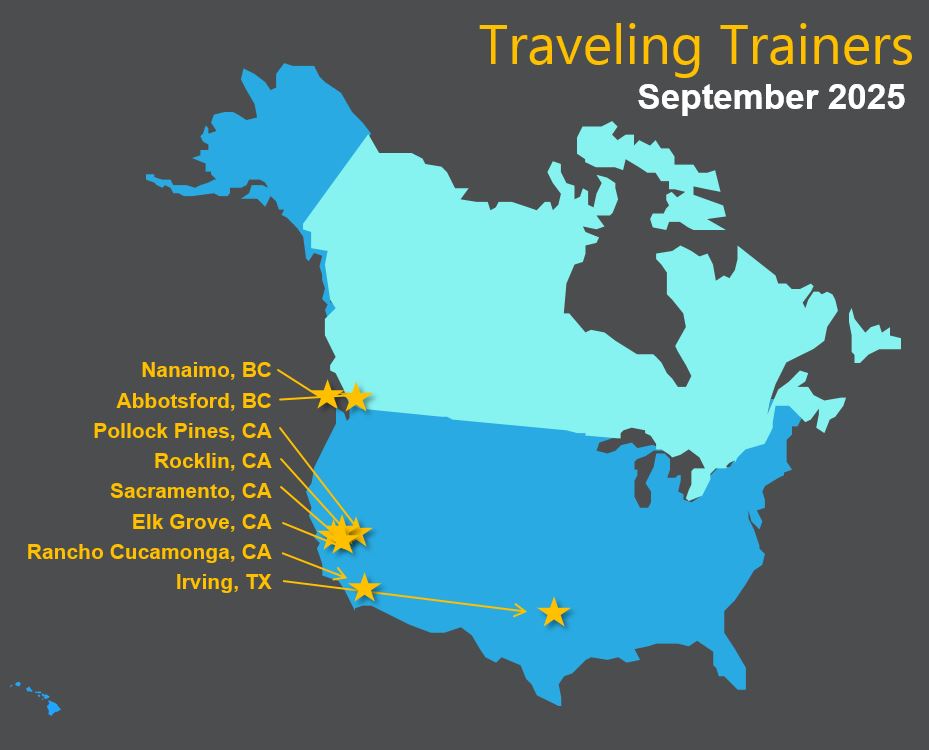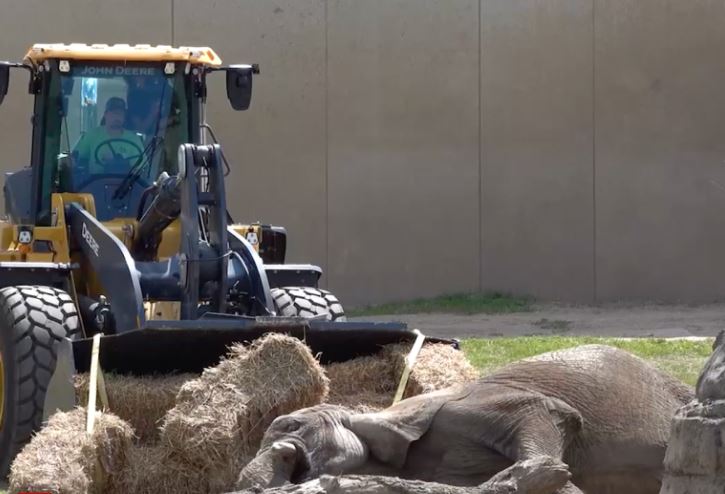
The IVES Update Newsletter is a highly informative monthly e-newsletter. It contains up-to-date industry information, regulatory updates, stories from the field, upcoming program dates, What’s Wrong With This? photos, incident reports, our interactive “Ask Bob” question and answer column, new product details and much more.
Whether you're interested in forklifts, mobile elevating work platforms, loaders or excavators – we’ve got you covered. Want to receive it directly to your inbox? Sign up for our IVES Update e-Newsletter!
Year:

Most folks think of workplace safety in terms of OSHA regulations, safety data sheets, and training sessions. But psychological safety is just as important. It’s the key to a culture of safety that empowers workers to report hazards, call out unsafe behavior, and offer constructive safety feedback without worrying about backlash.
Without a foundation of psychological safety, even the most well-intended safety programs can fail to create lasting change. But it’s never too late to start laying the groundwork at your own organization.
In this piece, I’ll explain how and highlight the unique role safety professionals play in fostering a psychologically safe environment. But first, let’s take a closer look at the key components of psychological safety and how they impact your safety program.
Imagine a construction worker who sees a loose electrical wire sparking near a high-traffic area but hesitates to report it. The crew is on a tight deadline, and they don’t want to be scolded by the floor supervisor for slowing down work.
A few days later, the wire short-circuits, leading to a small fire that forces an evacuation and damages equipment. It’s a massive setback for everyone. But more importantly, it’s an incident that could have been prevented if the worker had felt comfortable speaking up.
Scenarios like this one are all too common: one survey found workers who feel psychologically unsafe are 80 percent more likely1 to report a workplace injury that results in medical attention or time off.
That said, psychological safety can be challenging to measure: I’ve found that when workers don’t feel safe, they’re usually hesitant to report dangerous conditions at all. That further increases the risk of accidents or injuries.
But what happens when workers do feel psychologically safe? More often than not, they feel more motivated and make smarter decisions. What’s more, they feel empowered to speak up when something’s amiss. In fact, Google’s Project Aristotle found that psychological safety is the no. 1 determinant of team success2—even more than a strict team hierarchy with rigid rule enforcement.
Despite the benefits I’ve outlined, many organizations struggle to create an environment that fosters psychological safety. Some of the most common barriers include:
To break down these barriers, I recommend encouraging leaders on the ground to:
With a proactive approach, organizations can create an environment where employees feel more valued and heard.
Safety professionals can play a unique role in fostering a psychologically healthy workplace. The key is to make psychological safety a fixture of your safety program.
My advice for safety professionals? Consider these three tips:
When your safety efforts focus on the psychological, you’ll find it easier to cultivate a workplace where employees don’t hesitate to take action on critical safety matters.
Trust and comfort are powerful motivators in the workplace. Without it, even the most well-intentioned safety initiatives will fall flat.
That’s why it’s so important to invest in fostering psychological safety. What you’ll unlock: a culture where employees feel more secure, engaged, and committed to the long-term safety of your team.
Source: OHS May 2025
 A waste management company has been fined after a young employee was run over by an excavator.
A waste management company has been fined after a young employee was run over by an excavator.
Farm XS (Northern) Limited, based in Barnard Castle, was sentenced after an incident on January 29 last year that left the 24-year-old with serious injuries.
The employee was only in his second week of employment at the Staindrop Road site when he was struck from behind by an excavator and run over. He suffered fractures to both feet.
An investigation by the Health and Safety Executive (HSE) found that the company had failed to ensure a safe system of work was in place.
The 24-year-old was working on a waste pile near moving vehicles with no physical separation between them. There was no risk assessment or system of work to protect pedestrians from vehicle movements.
HSE guidance clearly states that pedestrians and vehicles should be segregated when waste is being manually sorted.
By law, employers must ensure traffic routes can be used without risking the safety of workers nearby.
The case against Farm XS (Northern) Limited, Shaw Bank, brought by the HSE, was heard at Teesside Magistrates’ Court on Tuesday, August 5.
The company pleaded guilty to breaching Section 2(1) of the Health and Safety at Work Act 1974. It was fined £4,000 and ordered to pay £4,285 in costs.
After the hearing, HSE inspector Richard McMullen said: “The outcome could have been much worse.
“But the failures that day meant a worker received serious injuries. This incident was easily avoidable by implementing control measures and safe practices to ensure that workers were not put at risk from moving vehicles, including clear segregation and safe refuges.
“This should be a reminder to the waste industry of the need to consider workplace transport risks and to introduce appropriate control measures to separate vehicles and pedestrians.”
Source: Teesdale Mercury Aug 2025
 Q: Do you need a valid drivers license to operate a forklift in the province of British Columbia?
Q: Do you need a valid drivers license to operate a forklift in the province of British Columbia?
Can you drive while suspended or having license revoked due to medical issues?
A: Thanks for checking in with Ask Bob!
There are no requirements to have a valid drivers license unless the forklift will be operating on a public road per WSBC. However, the CSA standards (B335-15) do state some requirements for forklift operators:

 "Perfectly put together and taught. Every day of class was eventful and informative."
"Perfectly put together and taught. Every day of class was eventful and informative."
Patrick H, Custom Trainer Certification
"As a new Safety Director, IVES Training certification has given me the information and skills I need to evaluate our existing safety program and provide excellent operator training to our employees."
Tom D, Premium Combo Trainer Certification
"The IVES programs are by far the best in the business."
Corey J, Express Skid-Steer Loader Trainer Certification
copyright © IVES Training Group 2022 All Rights Reserved.